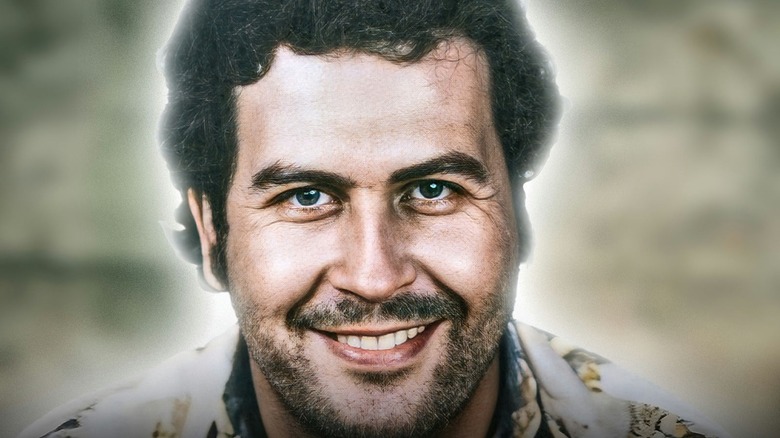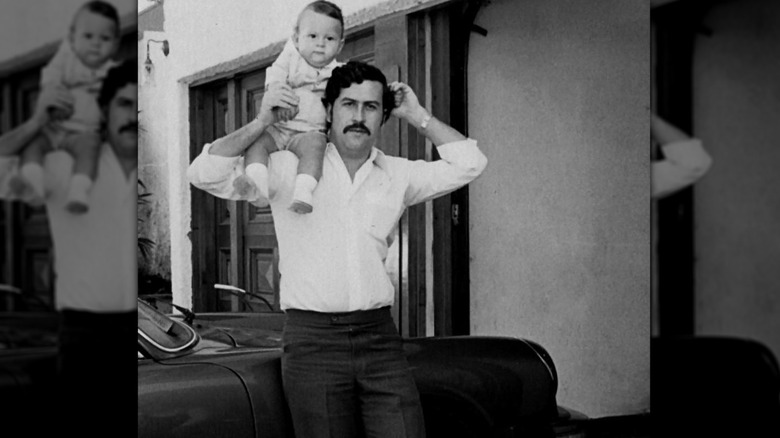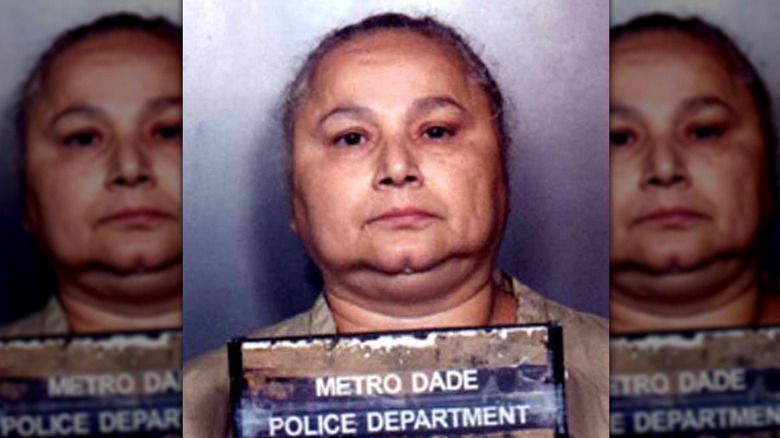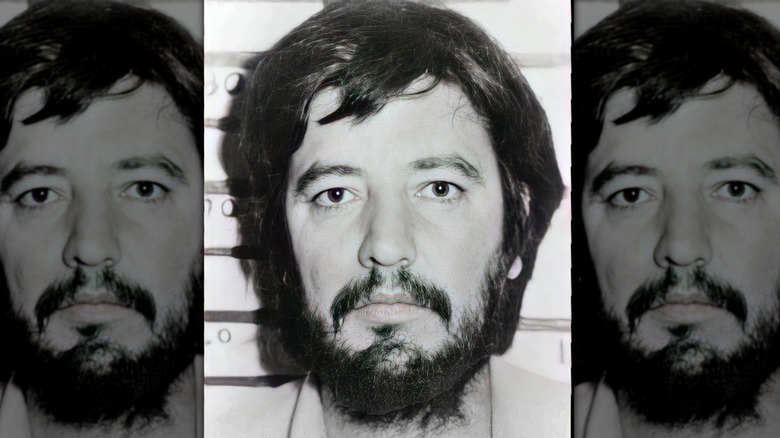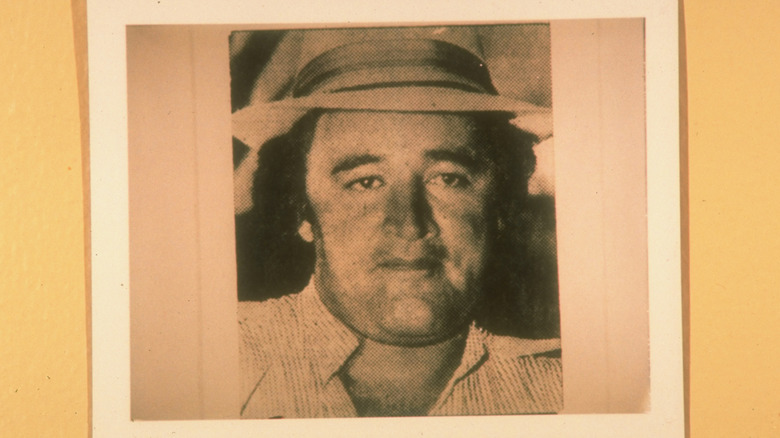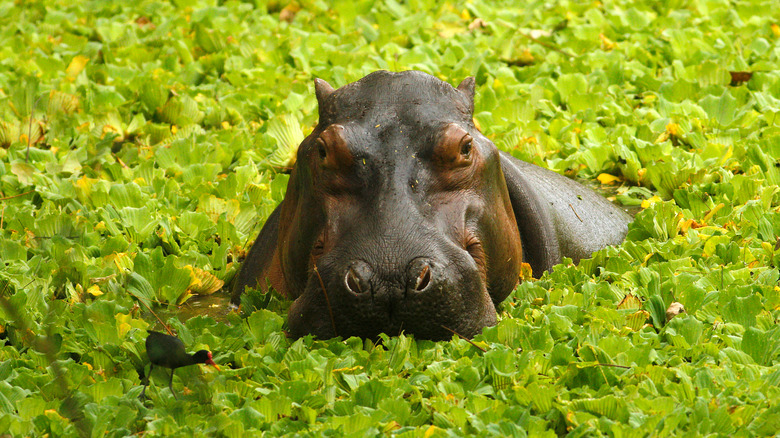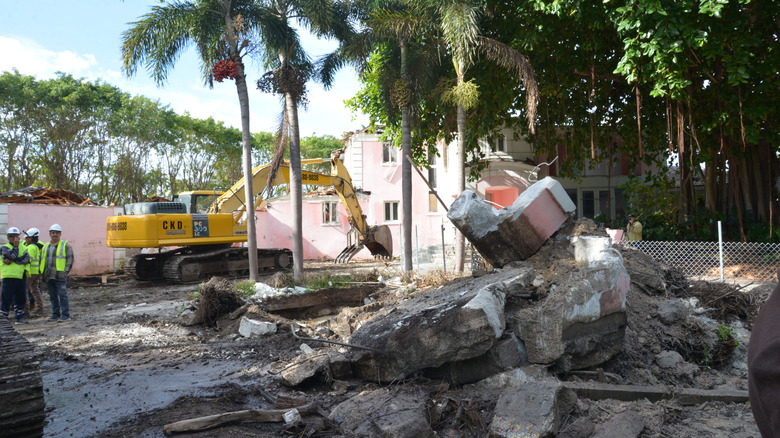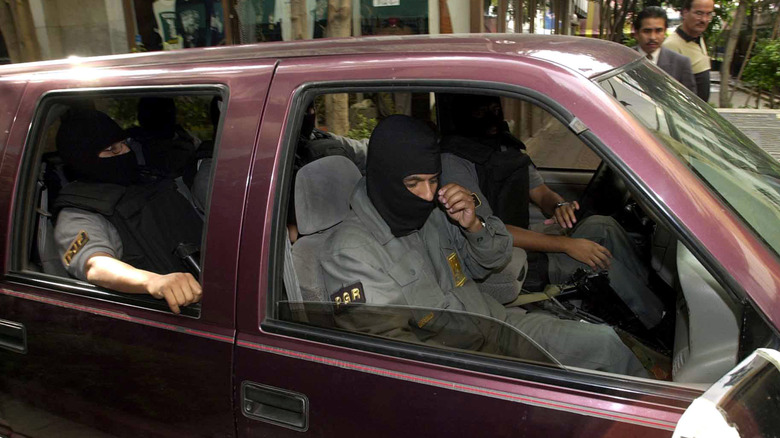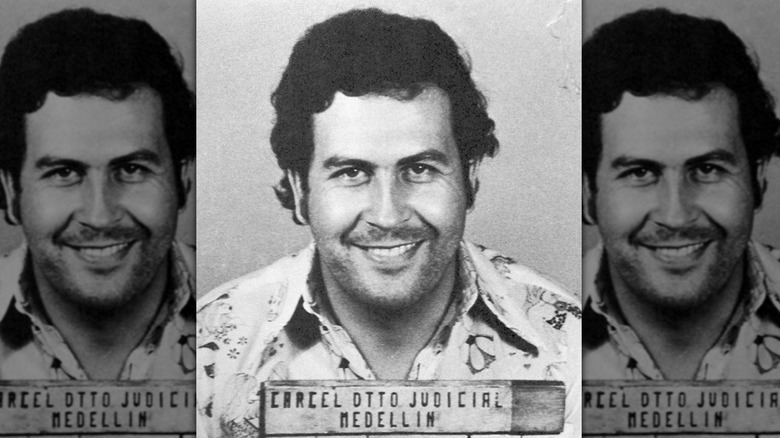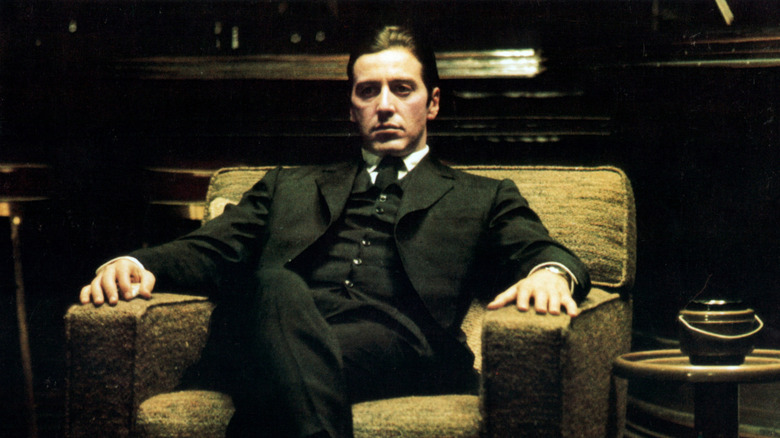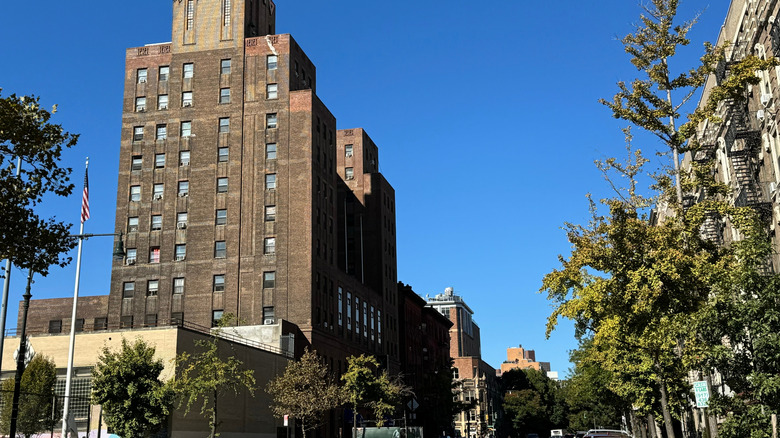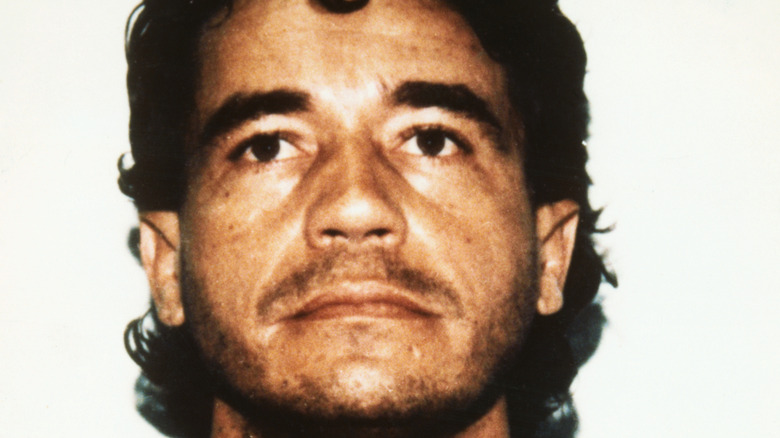Things That Came Out About Drug Lords After They Died
Drug lords have to keep a lot of information close to their chest. While the media love a salacious story of criminals getting rich off of their ill-gotten gains, the subjects of those stories rarely look for the limelight. However, once a drug lord passes on, be it from natural causes or a more spectacular final struggle, a lot of new information can cascade into public view. After all, keeping those secrets might have required a lot of active effort on the part of the subjects, and their living descendants can be tempted by a new, more legitimate revenue stream.
Certain criminals, most prominently serial killers, become celebrities within their niche. While there tends to be a plainly fearful image of murderers, drug lords can command an almost royal dominance over a local area. They develop complicated legacies, which often represent something very different in the areas they control versus the wider world. For example, bootleggers and bank robbers like Al Capone could become hometown heroes by dishing out occasional good deeds between business decisions. Modern drug lords can embody the same mixed legacy, turning their territories into dedicated sanctuaries where some stay silent out of fear, but others want their favorite felon to succeed. Here are some often unexpected things about drug lords that didn't stay hidden after they died.
Pablo Escobar was a strange father
The children of drug lords are often the best posthumous sources for their lives, gradually setting records straight and unveiling the interior details of their fallen parents. Pablo Escobar, for example, had two children, one of whom frequently discussed the man's legacy. Born in Medellin, Colombia, in 1977, Juan Pablo Escobar is the only son of the 20th century's most famous drug lord. He now goes by Sebastian Marroquin, an assumed name that allowed him to escape the downfall of his father's criminal empire. Marroquin has repeatedly renounced his father's vocation while still proclaiming his love for the man. He's also made a fair amount of money on speaking tours and a book unpacking the untold truth about Pablo Escobar.
Marroquin gave curious onlookers a close view of his relationship with his late father. In chunks of his book "Pablo Escobar: My Father" (via Medium), he shares slices of a seemingly normal upbringing with a few odd quirks, such as Escobar being obsessed with his appearance and fixated on winning, prompting him to cheat at games like "Monopoly," a charming snapshot that humanizes Escobar.
The drug lord was also quite tender while separated from his son. On December 1st, 2023, Marroquin commemorated his late father's birthday by sharing a formerly private letter Escobar wrote to him while on the run. In the letter (via Daily Mail), Escobar expressed his love for his son, calling him his "best friend" and promising to "fight and sacrifice whatever is necessary."
[Featured image by Ghazi777755 via Wikimedia Commons | Cropped and scaled | CC BY-SA 4.0]
Griselda Blanco was implicated in over 40 murders
Since the workings of a drug empire are so often cloak and dagger, a lot of the criminal charges associated with them remain speculative. Griselda Blanco, for example, can only be confirmed to have done a percentage of her worst offenses, and the word "allegedly" hangs over her long career like a bad smell. Blanco operated an empire during the turbulent Cocaine Cowboy Wars of the late 1970s and was one of the most innovative leaders of the era, revolutionizing the cocaine trade with a brazen creativity that made her powerful. She also definitely ordered some murders, but the number remains in some dispute.
In 1994, Blanco caught charges for three Miami murders she ordered, eventually pleading down to second-degree murder charges. At the time, Al Singleton of the Metro Dade Police Department stated, "We've got her, conservatively, estimating her to be involved in at least 40 homicides between Miami, Queens, and Broward County" (via CNN). That number remains somewhat consistent among accusations, but the truth of the matter is that we will never know her real body count. After her death, Assistant U.S. Attorney Stephen Schlessinger told the Miami Herald, "It would certainly be dozens." Moreover, he straightforwardly stated that Americans have no way of uncovering the full weight of her criminal empire.
Amado Carrillo Fuentes' death inspired countless conspiracies
Amado Carrillo Fuentes was a notoriously reclusive figure during his rise to power. It can be said that almost all of Carrillo's criminal empire was kept under wraps until his passing, but his ending also raised plenty of new mysteries. Carrillo gained the nickname "Lord of the Skies" for his obsession with private planes and a fondness for using them to move millions of dollars worth of cocaine. His heyday was in the mid-1990s, when he operated at the top of an illicit network, and many consider him the smartest operator in his illegal industry, leading to a lot of controversial beliefs about his otherwise mundane passing.
Carrillo died while undergoing plastic surgery in 1997, allegedly seeking to alter his appearance to increase his anonymity. His wake took place in July that year, featuring countless journalists who took photos of his dead body. Because he died while trying to change his face, reportedly falling prey to a mix of anesthetics that caused a heart attack, many believed he had actually faked his death and escaped with a new look. In 2015, Carrillo's supposed cousin, Sergio Carrillo, told Telesur, "Amado is fine. He is alive. He had surgery and also had surgery practiced on some poor unfortunate person to make everybody believe it was him." These theories remain common, but there's still no concrete evidence to support them.
[Featured image by Amado727 via Wikimedia Commons | Cropped and scaled | CC BY-SA 4.0]
Jose Gonzalo Rodriguez Gacha hid millions
José Gonzalo Rodriguez Gacha grew up absurdly poor, likely inculcating a respect for liquid assets in his young mind. Gacha did all he could to rise from poverty, finding himself in the shady emerald business before his 30th birthday. That position made him wealthy, but when he joined forces with Pablo Escobar and joined the drug trade, he became one of the wealthiest men of the era. Gacha made himself an icon in the small Colombian village of his birth where, waving around absurd stacks of cash, his ownership of various properties and fondness for absurd excess gave him a legendary reputation. He had so much money that most of it outlived him.
After Gacha's death, the military seized his massive farm property, known as Cuernavaca. They discovered several guacas — traditional Colombian buried tombs full of valuables – on his land. The first contained more than 10 million dollars, and the second held more than eight. While Gacha buried millions in paper money, he was also fascinated with precious metals, hiding silver and gold all over his properties. It's said that Gacha dug tunnels to move safely between several homes, leading many civilians to raid Cuernavaca after Gacha's passing in desperate hope of finding even more of his absurd wealth. It's still entirely possible that the largest guaca is still hidden beneath a massive lake behind the house.
Pablo Escobar kept 'Cocaine Hippos'
While everyone knew Pablo Escobar was a wealthy drug lord, very few could imagine the true extent of his excess. Only after he died in a shootout with the police in 1993 did the authorities publicize his living conditions, revealing a ton of fascinating uses of his many millions, one of which was that Escobar owned and operated a private zoo.
Escobar's zoo held over 200 animals, all reportedly flown in on his private planes. After Escobar's death, authorities began the long and difficult task of bringing those animals to other public zoos all over the world. In that process, the cops left behind four hippopotamuses, as they were simply too heavy to easily fly out, which went on to create the largest hippo population outside of Africa.
Escobar's four hippos lived in one of his estate's many lakes and by 2006, those four hippos had multiplied to 16. While the local government considered exterminating them, the people developed a love-hate relationship with the hippos. One of Escobar's "Cocaine Hippos," a male named Pepe, posed enough of a threat to people that the authorities killed him, which led to a public outcry and a law outlawing their killing, and in turn the population grew even more. By 2023, the number of hippos was estimated to be over a hundred, and projections over the next decade range to over a thousand. Escobar's hippos have since been legally recognized as people, at least in the U.S., which has somewhat complicated matters.
Pablo Escobar's secret safe never became public
Pablo Escobar's most notable home was the Hacienda Napoles, a massive ranch that has since been converted into a zoo, theme park, and anti-drug museum. Escobar also spent a lot of his time in the United States, specifically inhabiting a notorious Miami mansion with an estate of over 30,000 square feet. In 2016, authorities brought in a demolition team to smash Escobar's house to rubble, but they found a thing or two in the process.
In 2016, The Tampa Bay Times spoke to Christian de Berdouare, the fast-food mogul who purchased Escobar's lot after the authorities knocked down the drug lord's manor. After knocking down the final wall, he became the proud owner of a large grey safe. De Berdouare stated, "This is real. It's still locked. It's very, very heavy. We can't believe it — now Pablito is my best friend." He teased his excitement at the prospect of opening the safe, hoping it was full of cash or diamonds, but no one outside of that household has since ever learned the contents of the safe, which supposedly remains locked to this day.
Amado Carrillo Fuentes' surgeons turned up dead
Amado Carrillo Fuentes aka the "Lord of the Skies" lived a life full of mystery, eventually culminating in a very curious demise. In July 1997, Carrillo was 41 when he walked into a private Mexico City clinic, gave the front desk a fake name, and laid down for extensive plastic surgery. Sources claim that the drug lord was feeling intense pressure from multiple directions, prompting him to seek sanctuary in foreign countries. He underwent more than eight hours of facial reconstruction surgery and liposuction to drastically alter his appearance, but less than 12 hours later, doctors found him dead in his bed. Professionals later determined a heart attack while under anesthesia killed the drug lord.
While no one seemed to suspect foul play from the doctors involved in Carrillo's passing, the police immediately claimed that the physicians went into hiding. Unfortunately, only a few months after the surgery, two of those doctors were found dead, their bodies bound, gagged, and stuffed into barrels with signs of torture. Much of Carrillo's territory erupted into violence after the drug lord's death, placing these two bodies in a larger trend of vengeance across the region. Another doctor on the project was later declared missing. These bizarre circumstances led many to believe that Carrillo faked his death and killed his doctors to keep his secret.
Pablo Escobar shared a touching goodbye with his family
The life of a drug lord's family can be complicated, but posthumous messages from wives and children have unveiled some tender moments. Under the harsh leadership of Pablo Escobar, the Medellin Cartel's rise and fall lasted around 20 years, granting the Escobar family a life of luxury and a tremendous decline. Always ahead of the game, Escobar reportedly had some knowledge of the fate that he faced, leading to a movie-ready final scene between Escobar and his loved ones.
In her book, "Ms. Escobar: My Life With Pablo," the late Escobar's wife, Victoria Eugenia Henao, discussed her tempestuous relationship with her husband. One of its most touching moments captures the moment Escobar told his family they'd be entering government protection. She describes packing up the kids and shedding tears late into the night as Escobar bid his children goodbye. Regarding their son, she stated (via Primer), "He bid farewell to Juan Pablo with a heartfelt handshake and a kiss on the cheek," and discussing their daughter, she claimed, "When he reached Manuela, he started crying." She notes that they'd never seen Escobar weep. The drug lord was dead 75 days later.
Griselda Blanco wanted her youngest son to go straight
As she built her criminal empire, Griselda Blanco frequently earned the nickname "The Godmother," and quite appropriately so, since she had a deep, sincere, and pure love for Francis Ford Coppola's classic 1972 film, "The Godfather." She leaned into that obsession when, in 1978, Blanco named her fourth son Michael Corleone Blanco after Al Pacino's character from "The Godfather" (pictured above). Michael Corleone's name carries certain implications, as he's the first member of the iconic Mafia family to go straight. His father sincerely hopes to see Coleone escape the life of crime and eventually drag the entire bloodline toward legitimacy. Long after Blanco's death, her son revealed that she had the same intentions for him.
In an interview with Business Insider, Blanco addressed his connection to Michael Corleone and his family's hopes for him. He considers his connection to his mother's actions a "generational curse" and celebrates the fact that he's "the first Blanco to bring legit money home." Blanco even quotes his late mother and brothers, claiming they frequently told him, "You have to show the face for the family. You have to make this s*** legit." Blanco has accomplished that goal, completing the only happy story of Griselda Blanco's sons.
Nicky Barnes' death was a secret for seven years
Leroy "Nicky" Barnes was born in New York City in 1933. He started his drug career early, running heroin across the city and developing an addiction of his own. Along the way, Barnes had several interactions with the law and ended up spending most of his life in and out of jail and prison. Nonetheless, Barnes eventually became a co-founder of the "Council," a group of African American heroin dealers. Adjusting for inflation, Barnes would be a multi-millionaire today, and that wealth led to an inflated sense of immortality that offended then-president Jimmy Carter. Subsequently, his next arrest resulted in a life sentence, and after getting out via the witness protection program, Barnes was forced to live the rest of his days away from the spotlight.
Barnes died of cancer in 2012 at the age of 78 or 79, but no one outside of his family learned of his fate until seven years later. According to his daughter (via the Atlanta Journal-Constitution), "My sister and I have kept his passing private and have not released it publicly." She shared news of his death under the condition of anonymity, suggesting that her sister might write a memoir about her life with Barnes. His name disappeared after he entered the witness protection program, leading to a delayed obituary.
Pablo Escobar snitched on Carlos Lehder
Carlos Lehder may be a slightly new name to those with only a passing interest in drug lord culture. Born in Colombia, Lehder went to jail at the age of 25, where he coincidentally met a man named George Jung. Jung had a decent business importing marijuana into the United States via airplane, but Lehder saw an opportunity to use the same vehicles to traffic cocaine, leading to a very lucrative business partnership. Lehder was an eccentric who had fascinations with Hitler and John Lennon, along with comically lavish parties that drew a lot of unwanted attention. In 1987, Colombian authorities raided Lehder's compound and sent him to the U.S. for trial. He spent decades in prison but only later revealed a final secret about Pablo Escobar.
In his 2024 memoir, "Life and Death of the Medellin Cartel," Lehder charged fellow drug lord Pablo Escobar with diming him out to the Colombian police. He claims (via El País) that the U.S. Attorney General's office sent him paperwork that revealed Escobar's connection to his arrest. Lehder accuses the office of shoddy redacting work, stating, "Even though several lines of the text were crossed out with black marker in the document, it was possible to see that Pablo Escobar was the person who had handed Carlos Lehder over to the Medellín police." Many theorized that Escobar snitched on his fellow criminal, but Lehder boldly confirmed that belief decades after Escobar's death.
